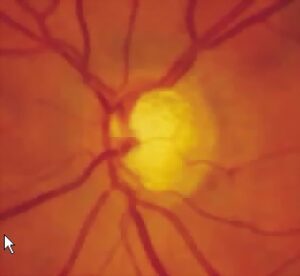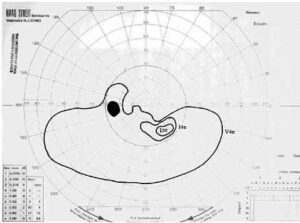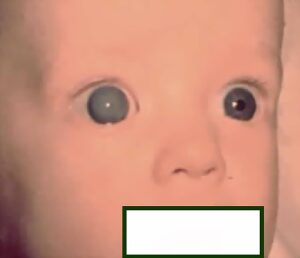by Prof. Prapassorn Phatikulsila, M.D.
Glaucoma is a disease that most people Often do not know that they have this disease when it starts in the early stages. When he found out, he was almost blind. Many cases of glaucoma have intraocular pressure that is too high. causing the optic nerve to be depressed The process is usually gradual and slow. But there is also acute glaucoma. which will have eye pain The eyes quickly blurred and came to see a doctor.
At present, glaucoma can occur even if the intraocular pressure is within the normal range. The optic nerve will continue to atrophy. We consider high eye pressure to be just “Risk factors” of the occurrence of glaucoma. not part of the diagnosis Simply put, Glaucoma is a condition in which the optic nerve is damaged. This may be associated with an abnormally high intraocular pressure. or ischemia of the optic nerve with normal eye pressure and often causes abnormalities in the field of vision

 Causes of Glaucoma
Causes of Glaucoma
The leading cause is an increase in intraocular pressure. which may be a result ofgetting older Because when people get older, there will be a deterioration of the drainage channel from the eyeball. causing the fluid inside the eyeball to be unable to drain internal congestion The eye pressure therefore increased. and this elevated eye pressure going to press and destroy the optic nerve causing the optic nerve to deteriorate or atrophy gradually until finally going blind besides that In the elderly, the lens of the eye tends to become larger. or have cataracts and cause angle-closure glaucoma to occur again
abnormal drainage May be caused by an eye disease such as inflammation or certain diseases that are congenital even having smaller eye proportions, such as people withvery long-sighted It can cause acute angle-closure glaucoma.
In addition to age and abnormalities of the eyes Family history is also very important because Because glaucoma can be inherited. We now know for sure that If a family member has glaucoma sibling Or the children of that family are more likely to develop glaucoma than others.
physical health, such asPeople with diabetes, heart disease, and high blood pressure was also found to have a greater chance of glaucoma
How does glaucoma cause blindness?
glaucoma with high eye pressure or risk factors mentioned above will cause changes in the amount of blood supply to the optic nerve Nerve cells die gradually. The width of the field of vision, or visual field, gradually narrows without being aware of it. Because the central area
of vision is still good But what starts to lose is the periphery, which gradually creeps into the center and eventually causes blindness.

How do you know if you have glaucoma?
Normally, we don't always know that we have glaucoma. until being inspected Except for someone who has quite good observation. and check the vision one by one by closing the left and right eyes alternately Because glaucoma is a disease that changes relatively slowly gradual in most people (except for acute glaucoma, which causes sudden and intense eye pain) It is difficult for people with glaucoma to know for themselves. In addition to examination by an ophthalmologist only
How is glaucoma diagnosed?
Must have a thorough eye examination by eye level measurement Measure eye pressure, check eye angle, and examine the optic nerve. In addition, computerized optic nerve analysis is now available. This will make the diagnosis faster and more accurate. In some cases, optic nerve imaging is also required. These are the duties of an ophthalmologist.
Can glaucoma be cured or not?
Although most glaucoma cannot be cured. but was able to control and prevent further spread But some types of glaucoma such as caused by a narrow angle of the eye It is acute glaucoma. can be cured If properly treated from the early stages
Types of glaucoma There are four common types:
- angle-closure glaucoma There are 2 types, acute and chronic. if it is acute There will be pain in the eyes, blurry eyes, red eyes, seeing rainbow lights around lights. The symptoms can be so severe that they cause nausea and vomiting if they are chronic. Some people may have a slight pain. from time to time Often treated as a headache for a long time without knowing glaucoma.
- chronic open-angle glaucoma It is the most common type. There are 2 types: high intraocular pressure type. and normal intraocular pressure Both types do not cause eye pain or redness. Patients are often unaware If diagnosed and treated late can cause blindness But if starting treatment from the beginning I can often keep my eyes on it.
- Glaucoma complications caused by other abnormalities of the eye, such as inflammation overcooked cataracts Accidents to eyes, tumors, use of certain eye drops and after eye surgery
- Glaucoma in children and infants Caused by an abnormality of the eye since birth There may also be other abnormalities of the body. The mother may notice that the baby has a tearful appetite, is afraid of light, or has an unusually large pupil. or there is cloudiness of the black cornea Must be treated by an ophthalmologist


How is glaucoma treated?
It usually starts with eye drops. which is a drug that lowers eye pressure Currently, there are new drugs to treat glaucoma. with a variety of high-efficiency This greatly reduces the need for surgery. Some may also use a laser. but if the disease cannot be controlled may need surgery which has many techniques that the ophthalmologist will choose to use according to the suitability of each patient some did not work May require surgery to insert a drain. which is made of special synthetic material
Your practice with glaucoma is simple.
- 1. Apply medication according to the doctor's prescription.
- 2. Don't let lack of medication You should go buy medicine before it runs out.
- 3. See a doctor as per appointment every time.
- 4. Good control of underlying diseases such as diabetes, high blood pressure high blood fat, etc.
- 5. No smoking
- 6. Do not purchase eye drops for your own use without consulting your ophthalmologist.
- 7. Take your family members for a detailed eye examination with an ophthalmologist. whether there is glaucoma or not If found, treatment will be started from the beginning.
Update 10/05/2564
